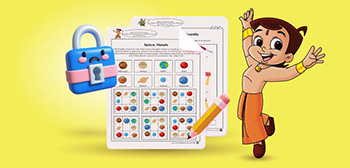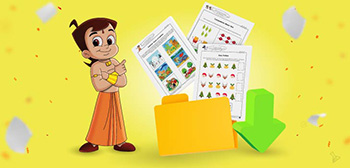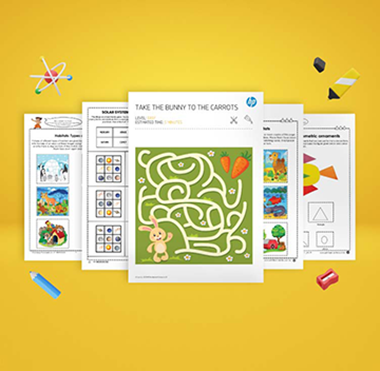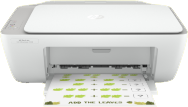Class 3 Worksheets (8-9 Years)
Discover an array of printable worksheets for Class 3 aimed at helping your children learn, practice, and master essential skills in all subjects. These resources are tailored to foster their development from basic to advanced levels.
Subjects and Topics Covered in Class 3 Worksheets
A class 3 student will study various subjects like Maths, Science, English and Social Studies. In maths, they will be learning addition, subtraction, multiplication, and division. In Science, they will be learning about animals, plants, the solar system, and matter. In English, they will be learning grammar, reading comprehension, and writing. Social Studies will teach them about history, civics, and geography. The printable class 3 worksheets for kids are made fun and engaging to learn new things quickly. Some fun worksheets for 9-year-olds include colouring pages, puzzles, mazes, and more. PLC covers both academic and life skills downloadable worksheets to ensure the holistic development of your child.
English:
Your 8–9-year-old child would have gained important vocabulary required for everyday conversation by now. Although the number of new words learned will start decreasing from the age of 8, the child will continue to discover unique words in the year. They will be able to use complex sentences with intricate grammatical structures. They will understand the use of prefixes and suffixes, root words, and even start using phrases. The class 3 English grammar worksheets include grammar, vocabulary, spellings, poetry, story writing, compositions, creative writing, and more.
Mathematics:
By this age, your child will be able to add, subtract, multiply and divide to solve problem sums involving distance, time, mass, and volume. They will know various units of measurement and know how to relate with each other. They will learn tables of 2 and 5 with ease. Our NCERT class 3 maths worksheets range from geometric to arithmetic to word problems and more. We have also added revision worksheets to strengthen their understanding of maths concepts.
Science:
8–9-year-old kids love science because they love asking questions and discovering facts, and that’s what science brings in store for them. They love to read, experiment, observe, ask questions, and conclude from their findings. At Print Learn Center, we encourage students to explore outside of academics and get their hands dirty with fun science experiments. Your child will explore various beginner topics in physics, biology, and chemistry through these science worksheets for class 3.
Activities in Class 3 Worksheets:
PLC’s activity-based worksheets focus on skill development of 8 year-old children in a fun and engaging way. Our activity worksheets for class 3 includes crucial non-academic subjects like value and life skills, independent living skills, hobbies and interests and many more as below:
First Aid:
9 year olds are at a great age to learn first aid. They are old enough to understand the concepts and they are still young enough to be eager to learn. Additionally, first aid is a valuable life skill that can help 8 year olds in a variety of situations. Knowing first aid can also give 8 year olds a sense of confidence and empowerment. PLC’s First Aid worksheet for class 3 include activities like trivia, pictionary, safe or not safe, build your first aid box and more.
Doodling:
Doodling has a number of benefits, especially for children. It can help with focus and concentration, memory, and stress relief. When children are doodling, they are actually engaging in what is known as “executive function” activities. This means that they are using parts of their brain that control things like attention, working memory, and cognitive flexibility. Experts at Print Learn Center have included tonnes of doodling activities for your class 3 kid to explore.
Unscramble:
Unscrambling activities are a great way for students to learn new vocabulary words. They can also help students review and remember information they have already learned. Unscrambling words helps your brain because it is a visual way of representing code. By seeing the code in action, students can better understand how it works. In addition, unscrambling words can help students develop their problem-solving skills. PLC’s downloadable pdf worksheets for class 3 include tonnes of unscrambling activities for your child to practice.





